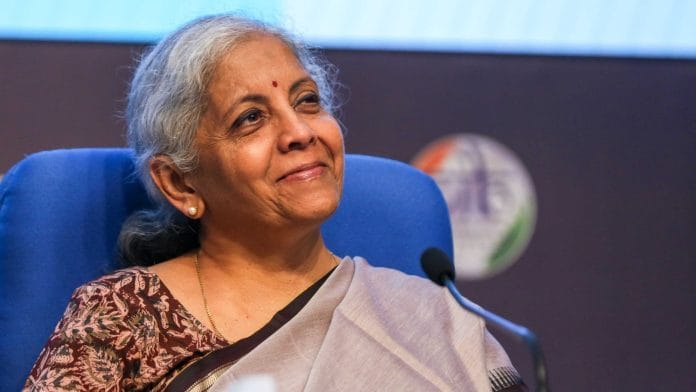Imitation is the best form of flattery, said Oscar Wilde. The Congress party can legitimately feel flattered after the presentation of the Union budget by Finance Minister Nirmala Sitharaman. The unstated structural shift in the budget was a recognition by the Narendra Modi government that its decade-long faith in trickle-down economic policy is misplaced. It has not trickled down to people with jobs and incomes. This change in the government’s mindset was catalysed by the Congress’ 2024 election manifesto.
The only “emergency” that should be a national discourse, but is not, is the jobs emergency. Sitharaman finally acknowledged it, mentioning the word “employment” two dozen times in her Budget 2024 speech. She outlined some new ideas to boost job creation — an employment-linked incentive scheme for corporates, an internship programme for youth, a critical minerals mining mission, and the removal of harsh taxes such as the angel tax to spur start-up investment. Each of these specific proposals was promised in the Congress’ election manifesto. It is laudable that the finance minister chose to keep politics aside and adopt these ideas, albeit under different names and details.
While one can be justifiably sceptical about these announcements fructifying into real jobs for millions of youth, it is important to note the shift in policy impetus toward direct labour market interventions from reliance on headline GDP growth translating into jobs. In the last decade, the Modi government has attempted various measures such as “Make in India”, corporate tax cuts, production-linked incentive schemes, and so on to spur investment and production in the hope it would trickle down to jobs and incomes. None have yielded enough jobs. The new ideas announced by Sitharaman in the budget are a move toward direct rather than indirect employment focused policies.
New schemes, old issues
Budget 2024 has allocated Rs 2 lakh crore over five years for these new employment-linked incentive and internship schemes. It even outlines a four-page annexure detailing plans to provide jobs for four crore youth over five years. This is characteristic Modi government bombast. To fund this, the finance minister plans to cut food and fertiliser subsidies by Rs 1.5 lakh crore (vis-à-vis FY2023). This is a bold gamble that will work only if these new employment schemes quickly start generating incomes for millions of people, offsetting the cut in subsidies. If not, the political backlash from subsidy cuts and continued unemployment can hit the government very badly, which may result in either a higher deficit or the abandonment of the new employment schemes.
Outside of these new employment ideas, the budget was uncharacteristically, but perhaps necessarily, sober and boring. It assumes a very modest 10.5 percent growth in nominal GDP, leading one to wonder if the government is just being cautious to set low expectations or is truly worried about economic growth. Recall that so far, economic growth has been driven primarily by government capital expenditure through roads and infrastructure building, not by private sector investment, which is unsustainable. Private sector investment will pick up only if consumption demand rises, which will increase only if people have jobs and incomes. So, it is perhaps prudent that the budget forecasts modest growth until these new employment schemes bear fruit.
One of the big structural problems over the last decade in the economy has been the regressive tax structure, where the middle class and poor shared a greater tax burden than richer corporates. The budget has made no attempts to fix this; if anything, it continues to expect personal income tax revenues to grow faster than corporate tax revenues. Ideally, with all the production and employment-linked incentive schemes for corporates, there was room to increase corporate tax rates and lower the personal income tax and indirect tax burden, which would have further served to boost consumption.
Unabashed appeasement
The budget also reflected the new “240” reality of the Modi government. With just 240 seats in the Lok Sabha and the government dependent on regional allies TDP (Andhra Pradesh) and JDU (Bihar) for survival, the budget went down on its knees to please these two states with Rs 15,000 crore and Rs 21,400 crore commitments, respectively, either directly or indirectly. This is foolhardy and deeply problematic, taking India’s already damaged federalism further down a slippery slope.
It is important to remember that India’s fiscal federalism is already precarious, with just five states contributing tax revenues for the remaining 25 states. States like Tamil Nadu, Maharashtra, and Karnataka will soon be justified in asking why they should share the tax burden for the Modi government to shower goodies on two special states. Other regional allies have already demanded special assistance for their states, soon after the budget was presented. Narendra Modi is Prime Minister for all of India, and if this trend of appeasement to two states continues, he will soon cease to be Prime Minister. The excuse of political compulsions is hollow since this is not the first coalition government in India, and previous ones have survived their tenures without resorting to such short-term and divisive budget proposals.
Overall, Budget 2024 can be lauded for unabashedly borrowing sensible ideas from the Congress’ manifesto to address India’s biggest challenge of jobs but reprimanded for being politically narrow-minded and risking India’s delicately balanced “union of states” structure.
Praveen Chakravarty is a political economist and Chairman, All India Professionals’ Congress. He tweets @pravchak. Views are personal.
(Edited by Prashant)






